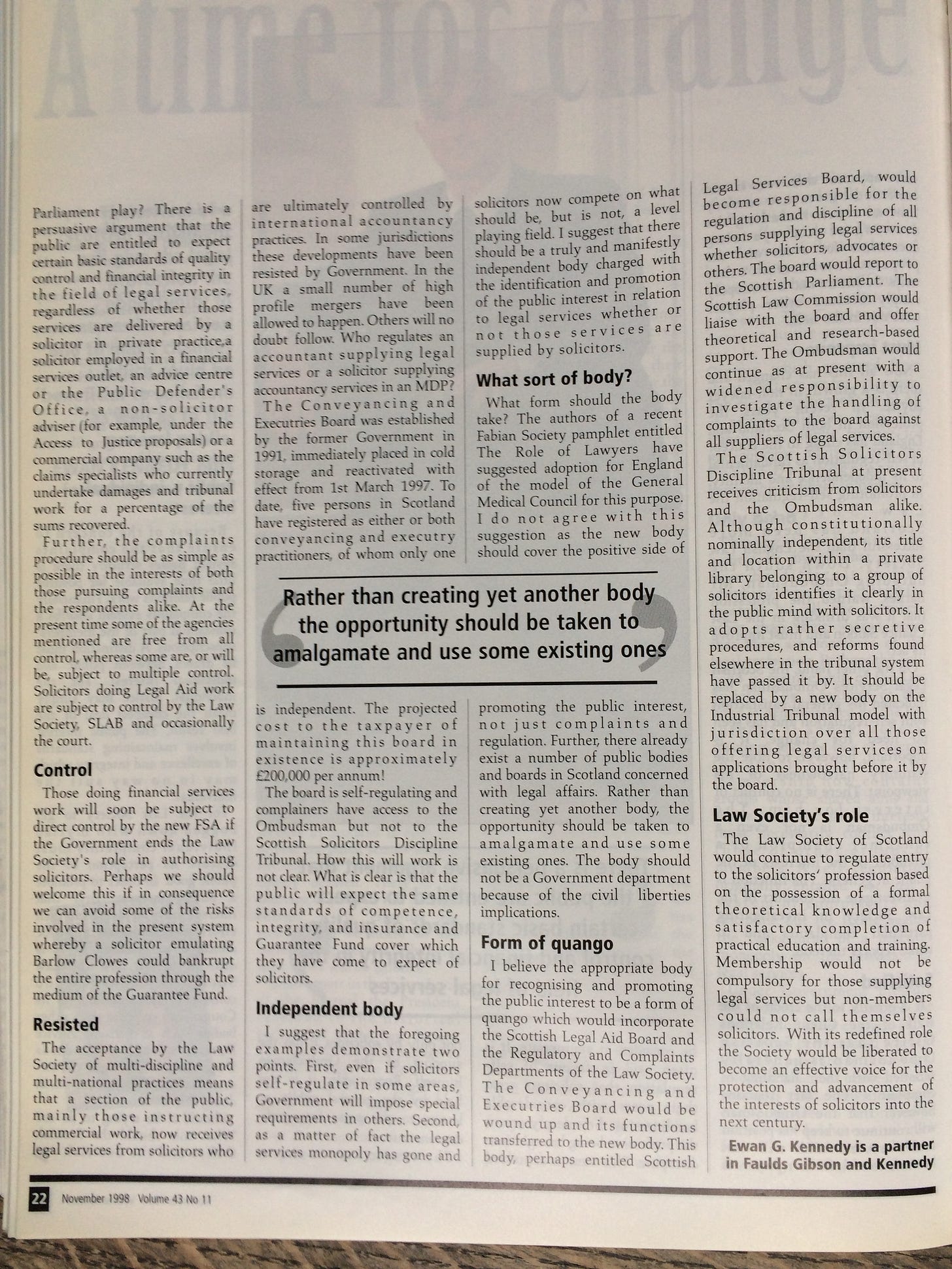The late Iain Gillies, McGruers’ long term head rigger.
There were several old Scottish terms for a lawyer: an advocate in Aberdeen, a procurator in Glasgow, which sounds slightly dodgy. No doubt their clients had others. The most common was a writer, and it certainly fits most of us; when you’ve been writing for half a century it’s hard to stop. I’m reminded of my old pal Iain Gillies, genius among boat riggers, who could turn out a perfect flattened Turks head in minutes long after he no longer knew what day it was. It’s not quite the same with political commentary.
Over the years I’ve had the reassurance of finding people willing to publish me, from the law page in the old Glasgow Herald to the much missed Kenneth Roy in the Scottish Review. Occasionally I’ve hit a raw nerve, such as when the Journal of the Law Society of Scotland appointed a new editor, one David Cameron, and having seen some pieces in the law page, he asked me to write on regulation of the profession. In the early summer of 1998 I sent him my draft, then waited patiently month by month, while nothing appeared. My probing revealed that the secretary of the Society was insisting on seeing, and perhaps censoring, my work, which one imagines had worked with previous solicitor editors. A suggestion that a newspaper might be interested resulted in the article appearing in late Autumn. The debate on legal regulation still goes on, and today my effort would be seen as almost mainstream, probably pretty weak.
More recently, the late Iain Lawson picked up on various things I’d written, and asked me to write for him. I have rarely felt so shocked at the news of a friend passing and almost a year later am still coming to terms with the loss personally. For our nation, his loss, and that of Alex Salmond in the same critical year, can’t be measured.
I had first come across Iain decades ago, when he was involved with some friends who were Tories (they probably still are, I don’t see much of them these days). Later, through Estonian friends, I became interested in what he was doing on the international front, and started following his work seriously. From his background and experience in business and politics he was well placed to advocate a future Scotland that would prize inclusivity, and tolerate diversity of views. This is what we Scots should be most proud of, as we reflect on our people’s contributions to the development of thought from the Enlightenment onwards.
In his last few months, Iain had been writing powerfully against those whose words seemed to support a return to earlier times, when fellow citizens were punished for thinking “unthinkable” thoughts. When senior politicians utter slogans, such as making Scotland “Tory free”, they are unthinkingly promoting a one party state; one of Iain’s articles, which he republished shortly before he died, was titled “No to Stalin’s Scotland”, and it was a very timely warning of the risk of ideological capture.
The cause of Independence requires strong leaders and big egos, but it also requires thinkers in the backrooms doing the hard work of research, fact checking and writing, of all of which Iain was an absolute master. His warm personality, his ability to relate to people, to bring those of different views together, made him almost unique. I’m relieved and pleased that his family are keeping his Yoursforscotland website online as an archive, and fully understand that he can’t be replaced as the moderator. In due course, as lawyers are always saying, I’ll republish some of my own efforts here.






